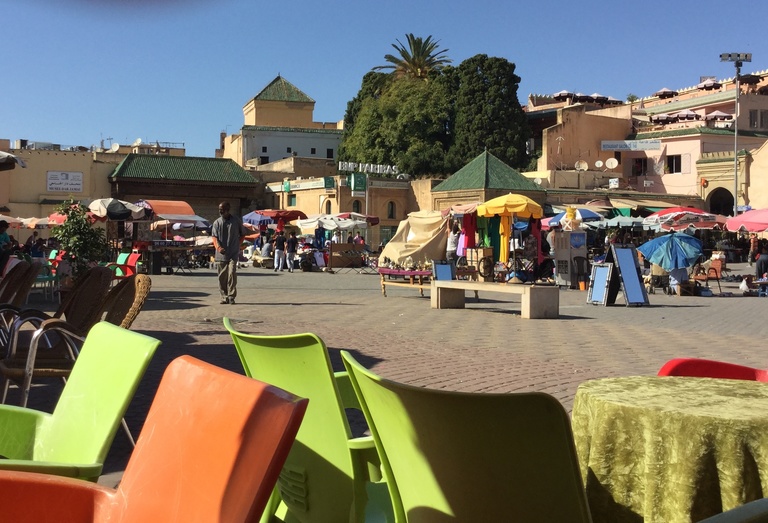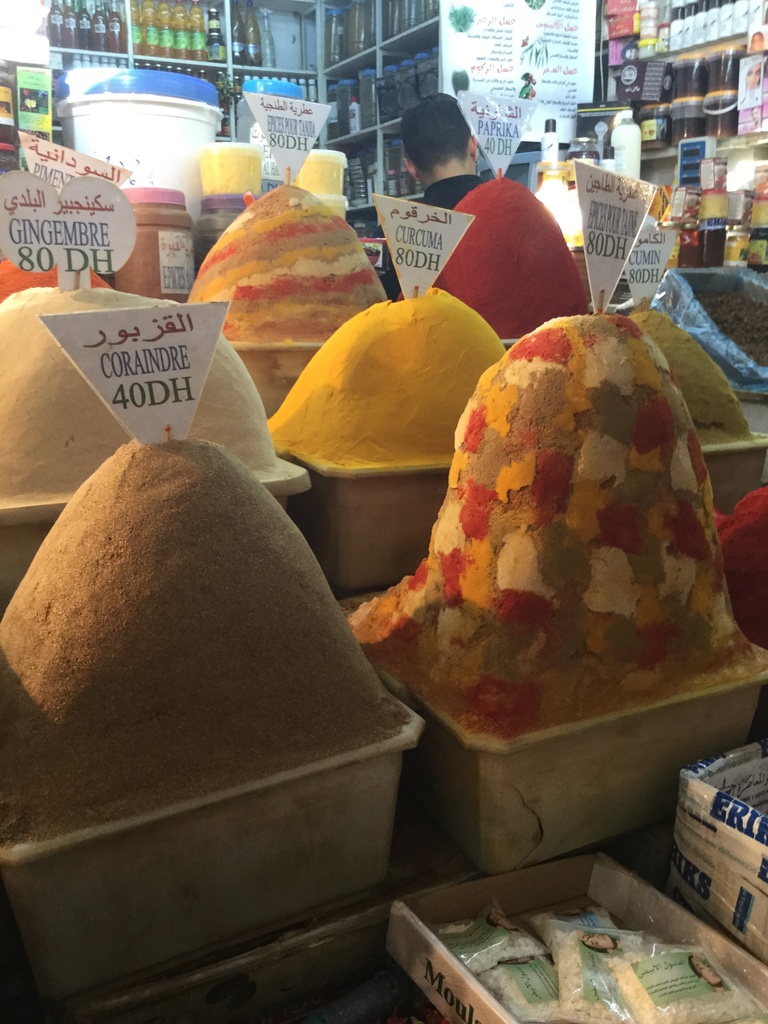By Claire Jacobson*
I've studied Arabic for three years. I can write papers, discuss ideas, give presentations, and I can't even ask a taxi driver what the fare is in Morocco. Or I couldn't yesterday morning, when my fellow international student and I took a taxi with four other people (two in the front seat, four squeezed in the back) to the city of Meknès, about an hour away from campus, for the day. We were lucky– there happened to be someone else in the taxi who spoke English.

A view of Pl. el Hedim and the old medina in Meknès, Morocco.
Once we got to Meknès, though, I had the horrible realization that not only was my knowledge of Modern Standard Arabic utterly useless in a world where Darija, the local dialect, is incomprehensible even to native Arabic speakers from farther east, but I was also the only one of the two of us who spoke any Arabic at all. Meknès is not a city known for attracting tourists like Fes, which meant that half the time my French wouldn't do me any good either.
With that panicked understanding in mind, our first hurdle was to get from the taxi station to the medina, where we had planned to spend the afternoon. Looking around, all I saw were taxis and men shouting at each other. After a few minutes, I caught sight of two women crossing the parking lot, and approached them to ask for directions. After describing the way in Darija, the first woman stopped and looked at me and said, "Fhmti?" You understood?

A spice shop in the souq. The multicolored mounds are commonly used spice mixtures.
(Oh yeah, there's almost no vowels in Darija. Last semester my professor tried to explain to us how it was humanly possible for a language to have four consonants in a row with no vowels, and now I finally understand. Ustadh Dénes, I'm sorry I doubted you.)
I knew enough to reply, "Fhmt shwiyya." I understood a little. (Shwiyya has been a very useful word to know). I understood about half of what they said, and eventually they just pointed out the direction across the main road. We got where we needed to go– the interaction was successful.
The first time we stopped, my friend wanted to look at scarves that were hanging in a shop near the edge of the souq, the marketplace in the oldest part of the city. I tried to use French to ask the shopkeeper how much he was asking for one, and while he didn't speak any French, he seemed to understand what I meant. "Ah, bishHal?" he said.
"Yeah, that. BishHal hadha?" I asked, thinking I might as well try.
"Tlateen dirham," was his reply. Thirty dirhams, the equivalent of about three USD. And with that, I learned a new word– another very useful one, especially for shopping in a souq.
For the rest of the afternoon, we explored the souq and the medina. When I stopped to buy ground coffee from a spice shop, my strangled mixture of Darija and French worked out okay, but I'm ninety-eight percent certain that the shopkeeper was making fun of me in Arabic to the other customers. Our conversations for the rest of the day consisted of my six words of Darija, standard Arabic, some French, and a few desperate words of English thrown in, usually accompanied by flailing sign language.
The sheer indignity of it all was enough to make me determined to learn Darija if it is the last thing I do.
Claire Jacobson is a 2018 sophomore from Iowa City, Iowa, majoring in French and Arabic with a certificate in writing at the University of Iowa. She is studying abroad this semester on the ISEP Al Akhawayn University program in Ifrane, Morocco.